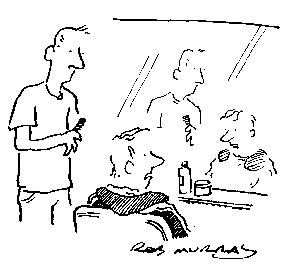By happy coincidence, all four of 2009’s major composers’ anniversaries link in a continuous chain, illustrating, directly or obliquely, two centuries of English musical life.
By happy coincidence, all four of 2009’s major composers’ anniversaries link in a continuous chain, illustrating, directly or obliquely, two centuries of English musical life. Purcell, born 350 years ago in 1659 and dying at 36 in 1695, overlapped Handel (b.1685) by a decade; at Handel’s death 250 years ago (1759), Joseph Haydn (b.1732) was already a seasoned musician of 27; 1809, the year of his death 200 years ago aged 77, was also the birthyear of Mendelssohn, who, like Purcell, died all-too-young, at 38, in 1847.
All three great German masters are deeply involved in the fate of English music — Handel through near 50 years’ residence in the capital, Haydn by his two important visits (1791–2; 1794–5), productive of a considerable body of miscellaneous works as well as the celebrated ‘London’ symphonies; Mendelssohn’s conquest was just as complete, also more widespread, culminating in Elijah for Birmingham in 1846; and his idiom held sway here for most of the rest of the century, as Handel’s had the previous.
They encapsulate the old calumny that England is the ‘Land ohne Musik’. Not that there was no music! Just that it was principally foreign. Native compositional prowess in the long years between Purcell’s death and the emergence toward the end of the 19th century of Elgar (‘I knew we had it at last!’ exclaimed Bernard Shaw on first hearing the Enigma Variations in 1899) was simply overwhelmed, despite many a charming wayside bloom — Boyce and Arne, the juvenile genius of Thomas Linley, drowned aged 22 in 1778, the Wesleys father and son, Cipriani Potter (admired by Beethoven), Robert Pearsall with his enchanting partsongs, Sterndale Bennett (friend of Schumann and dedicatee of his études symphoniques); an incomplete list, whose comparative obscurity speaks for itself. (Plainly, Sullivan’s operettas are another thing.)
But of course all three great Germans are the English music of our missing centuries. Handel (naturalised in 1727), after turning away from Italian opera in the 1730s, laid the foundation of the national choral tradition in the succession of Old Testament oratorios in English from Deborah, Saul, Israel in Egypt onwards, as well as the supreme New Testament Messiah. Before and alongside lies his fruitful liaison with English poetry — Acis and Galatea whose text includes some lines of Pope; Semele (Congreve); and the glorious matching of true minds in his Milton and Dryden settings: Dryden’s two heroic pieces specially written for music (the Cecilia Ode and Alexander’s Feast); Milton by parallel in Samson, set direct in L’Allegro ed il Penseroso, that heavenly blend of the two complements, squared off with the age’s typical compromise Il Moderato (decidedly not part of Milton’s make-up) whose actual music in no way falls short of what precedes it. (But what would one not give for a Comus from this most pagan of all composers!)
Milton, albeit mangled, lies behind the text of Haydn’s Creation, just as the inspiration for its score lies in the grand Handel performances he heard on his London visits. In the end this take on Paradise Lost was set, in German, for Vienna (1798), but has been a staple of this country’s musical scene, surpassed only by Messiah and, later, Elijah, from early days. The origin of its successor The Seasons (1801) is equally English, in James Thompson’s four-part poem sequence of 1726–30 (Thompson was a Scot, I know; but he didn’t write in Gaelic). And Elijah seems to have been composed in English simultaneous with the German, and shows a care for just accent not always observed by Handel, often none too sensitive in his way with the still-foreign language.
England has seen many piquant musical might-have-beens: for instance, Mozart’s projected visit towards the end of his life, many years after his success in London as an infant prodigy, and Beethoven’s projected visit towards 1820. Suppose Weber had settled in rich, Philistine London for the prime of life rather than merely dying there in 1826 and being shipped back for permanent burial (1844) to the strains of his ardent follower, the young Wagner? Suppose Wagner’s political exile after 1848 had brought him to London again (he’d already enjoyed some success as conductor) rather than Zurich? And in the general diaspora of the late 1930s, that Stravinsky, Schoenberg, Hindemith, Weill, Bartók had ended up here, rather than in the United States; rather than the third-raters who didn’t cross the pond? And that Ligeti had escaped in 1952 to join an uncle in Reigate? And that the old Stravinsky, falling in love on a visit to Dartington in 1957 with English cathedral towns, had taken into actuality his expressed desire to relocate from Hollywood?
None of this happened; and perhaps none of it, if it had, would have changed anything. But Handel, Haydn, Mendelssohn all made an indelible impression upon the land of Purcell and Elgar which received them with such ardour. Rather than nourishing Debussy-style resentment at ‘the foreign domination that has stultified our native genius’, we should in 2009 renew grateful thanks that we succumbed at such a high level.





Comments